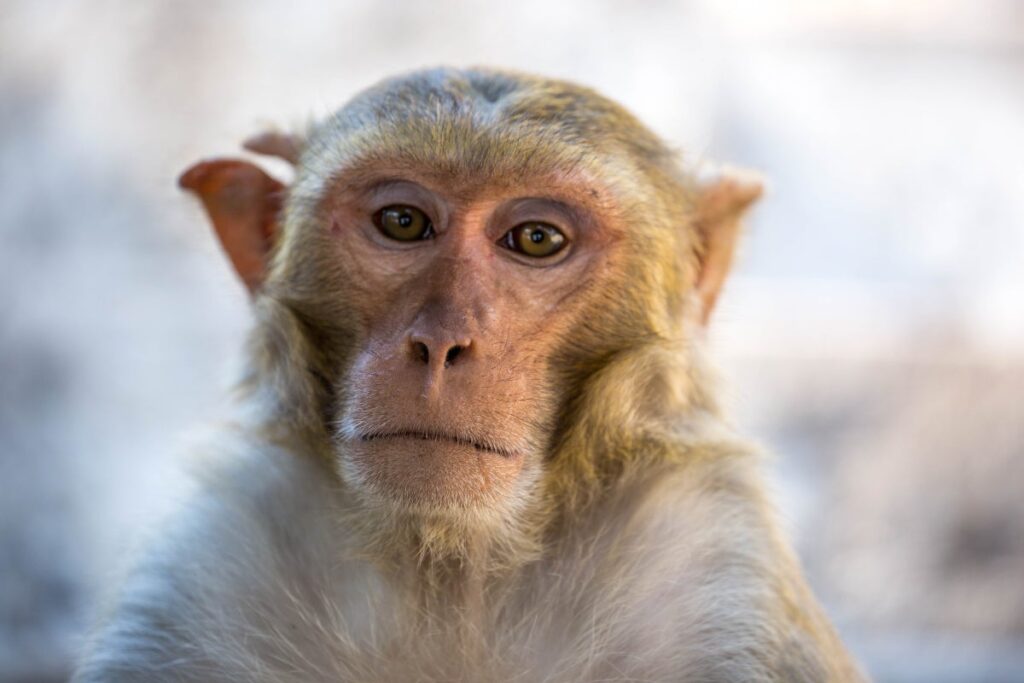November 21, 2025
2 min read
CDC to End Monkey Research Program
The Centers for Disease Control and Prevention’s decision to end its monkey research program will affect studies involving some 200 macaques, and the fate of the animals is unclear
Goddard_Photography/Getty Images
The U.S. Centers for Disease Control and Prevention has instructed staffers to end all monkey research, according to a report in Science. The decision will affect studies involving some 200 macaques; the fate of the animals is unknown.
The affected monkeys, housed at the CDC’s headquarters in Atlanta, were used in studies of infectious diseases, including HIV and hepatitis. The CDC reportedly plans to end its research involving the animals by the end of the year.
“It’s very concerning,” says JoAnne Flynn, a distinguished professor and chair of the department of microbiology and molecular genetics at the University of Pittsburgh, who has developed nonhuman primate models of tuberculosis.
On supporting science journalism
If you’re enjoying this article, consider supporting our award-winning journalism by subscribing. By purchasing a subscription you are helping to ensure the future of impactful stories about the discoveries and ideas shaping our world today.
“In infectious disease, things really need to be tested in a system that’s very similar to humans,” she says, stressing that primates are only used as animal models in research when other models, such as mice or cell cultures, aren’t effective.
The CDC’s decision comes as other federal agencies have moved to reduce reliance on animal research since President Donald Trump returned to power in January. Instead of using nonhuman primate models or other animals, the agencies aim to invest more in new chip-based and cellular models.
“CDC is committed to the highest standards of ethical and humane care and to minimizing the use of laboratory animals in accordance with the principles of animal welfare in scientific research known as ‘replacement, reduction and refinement,’” a CDC spokesperson told Scientific American. “As a part of long-standing agency practice and in alignment with the administration’s priorities, CDC regularly evaluates its research project portfolio, including nonhuman primate studies, and strives to use nonanimal research methods whenever feasible while ensuring the integrity of research that protects public health and safety.”
According to Science, the CDC’s current deputy chief of staff alerted employees to the decision to end primate research at the agency. And that order reportedly came from Secretary of Health and Human Services Robert F. Kennedy, Jr., who has made curbing animal research a part of his Make America Healthy Again agenda.
“I’m concerned that the research being done at the CDC will just be completely halted, even if the animals are in the middle of a study. That means we lost a lot of research knowledge,” Flynn says.
Even so, another primate researcher points out that “the studies at the CDC represent only a very small proportion of ongoing research studies in the U.S. at [National Institutes of Health–funded] research centers and universities,” says Nancy L. Haigwood, a professor and former director of the Oregon National Primate Research Center at Oregon Health & Science University. “These other studies will continue because they have been peer-reviewed to justify the experiments, meaning that the experiment can only be performed in nonhuman primates and not in the lab or other models.”
It’s Time to Stand Up for Science
If you enjoyed this article, I’d like to ask for your support. Scientific American has served as an advocate for science and industry for 180 years, and right now may be the most critical moment in that two-century history.
I’ve been a Scientific American subscriber since I was 12 years old, and it helped shape the way I look at the world. SciAm always educates and delights me, and inspires a sense of awe for our vast, beautiful universe. I hope it does that for you, too.
If you subscribe to Scientific American, you help ensure that our coverage is centered on meaningful research and discovery; that we have the resources to report on the decisions that threaten labs across the U.S.; and that we support both budding and working scientists at a time when the value of science itself too often goes unrecognized.
In return, you get essential news, captivating podcasts, brilliant infographics, can’t-miss newsletters, must-watch videos, challenging games, and the science world’s best writing and reporting. You can even gift someone a subscription.
There has never been a more important time for us to stand up and show why science matters. I hope you’ll support us in that mission.

